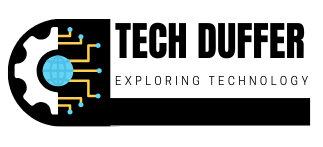Introduction:
In the realm of education, modern technology, particularly artificial intelligence (AI), is creating profound shifts in teaching methodologies and learning environments. This article delves into the transformative role of AI in education, exploring how it enhances learning experiences and addresses key educational challenges.
Artificial Intelligence in Education: An Overview
AI in education refers to the application of machine learning algorithms and intelligent systems to educational purposes. It involves the use of AI tools to automate administrative tasks, personalize learning experiences, and provide real-time feedback to both students and educators.
Enhancing Learning Experiences with AI:
- Personalized Learning: AI technology can tailor educational content to meet the individual needs of students based on their learning pace, preferences, and performance history. This personalized approach helps improve engagement and outcomes by addressing learning gaps more effectively.
- Automation of Administrative Tasks: AI reduces the burden of administrative tasks on educators by automating processes like grading, attendance, and scheduling. This allows teachers to dedicate more time to instructional activities and student interaction.
- Real-Time Feedback: AI systems provide immediate feedback to students on their assignments, enabling them to understand their mistakes and learn from them instantly. This timely intervention helps in reinforcing learning points and improving academic performance.
Broadening Access to Education:
AI-powered solutions like virtual tutors and language translation tools make education more accessible to students from diverse linguistic and socioeconomic backgrounds. AI technologies enable learners with disabilities to access instructional materials in formats that suit their needs and preferences.
AI in Curriculum Development:
AI also assists in curriculum development by analyzing vast amounts of educational data to identify trends and gaps in knowledge. Educators can use these insights to update educational content and methodologies, ensuring they are relevant and effective.
Challenges and Ethical Considerations:
Despite its benefits, the integration of AI in education raises concerns regarding data privacy, ethical use of technology, and the digital divide between different regions. Ensuring that AI tools are used responsibly and inclusively is paramount to their success in educational settings.
Conclusion:
The integration of modern technology, specifically AI, in education is not just about adopting new tools, but about transforming the educational landscape to make learning more inclusive, effective, and personalized. As we move forward, it is crucial to address the challenges and ensure that technology serves as a bridge rather than a barrier in education.
Final Thoughts:
Artificial intelligence represents a significant stride in the evolution of modern technology in educational contexts. By embracing these advancements, educational institutions can enhance the learning experience and equip students with the skills necessary for the digital age.

